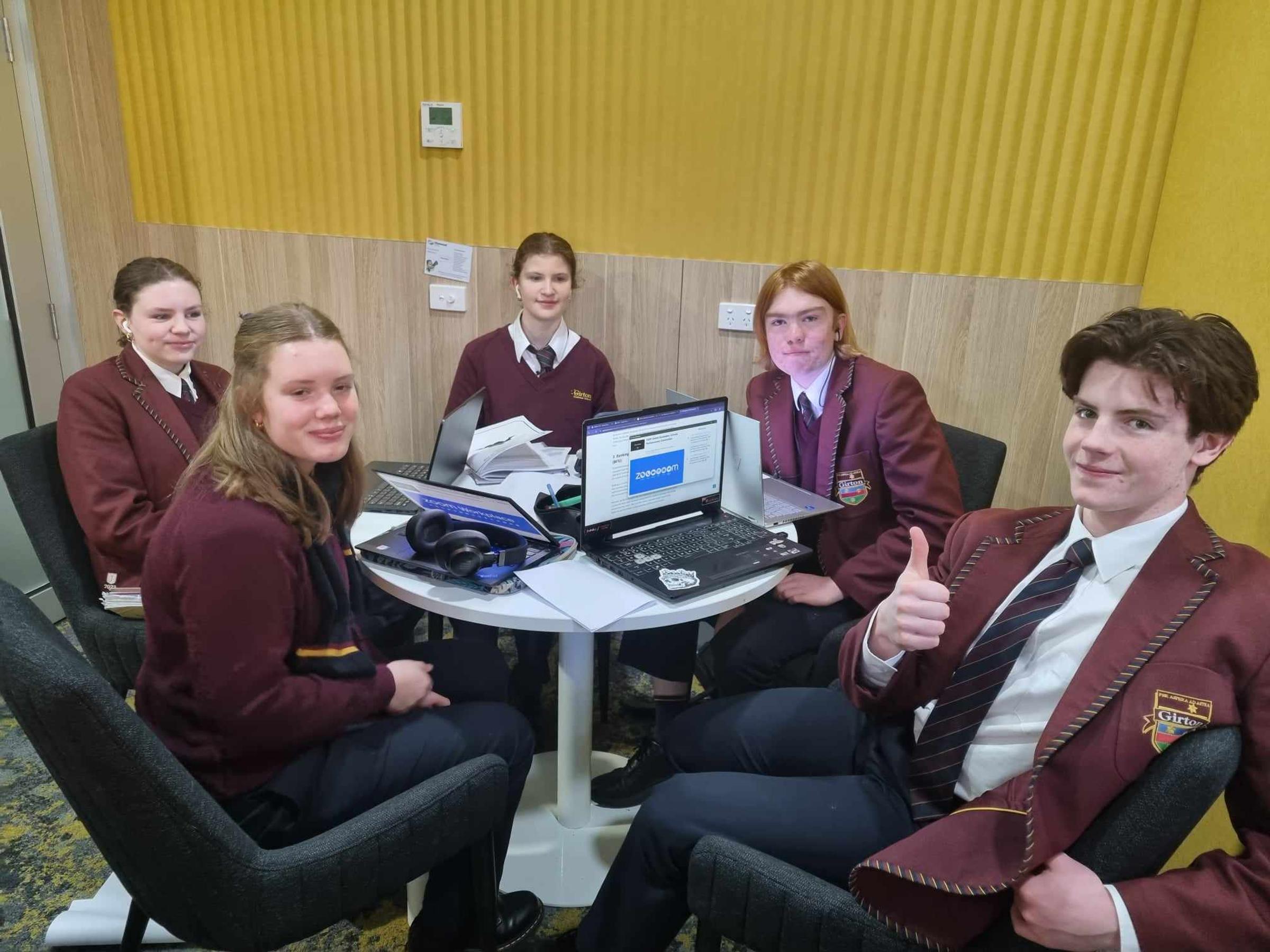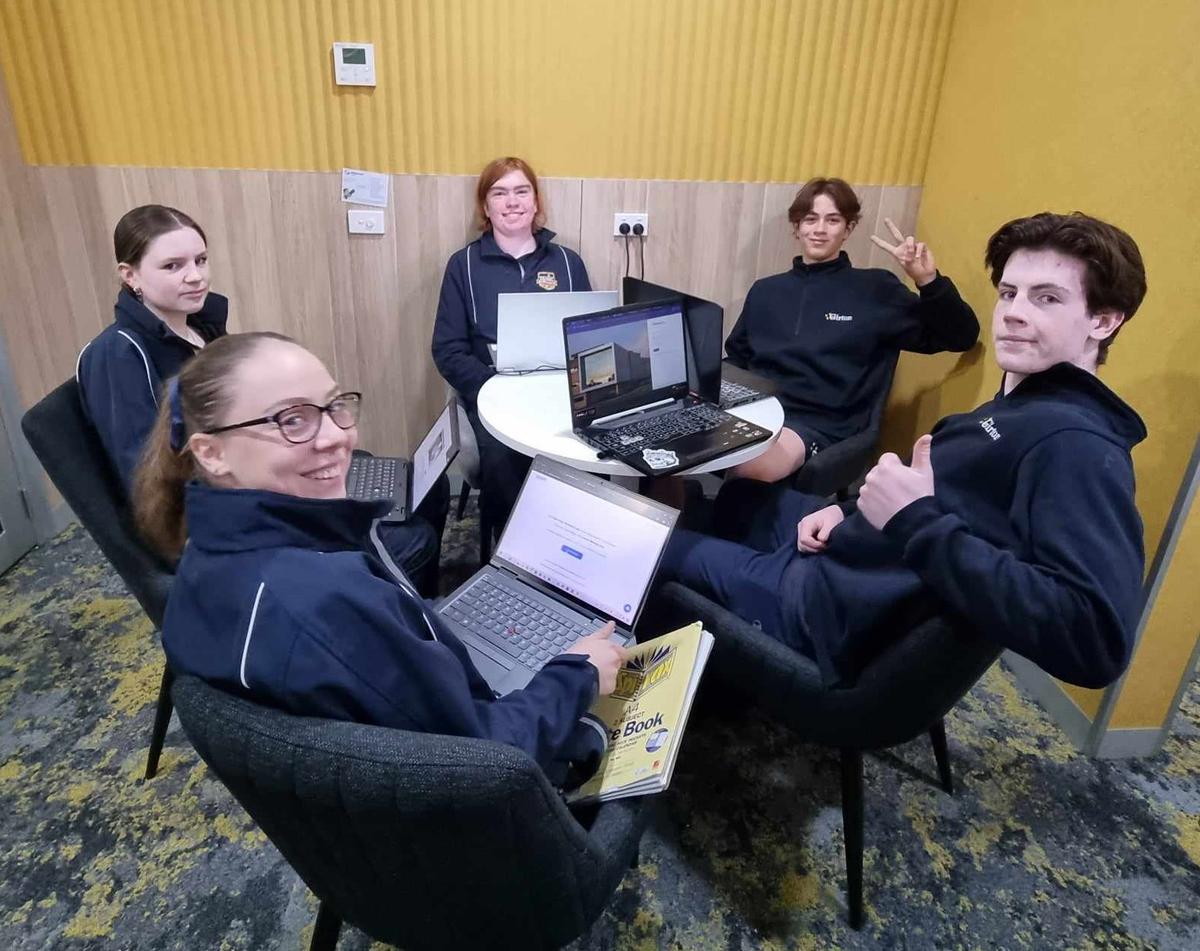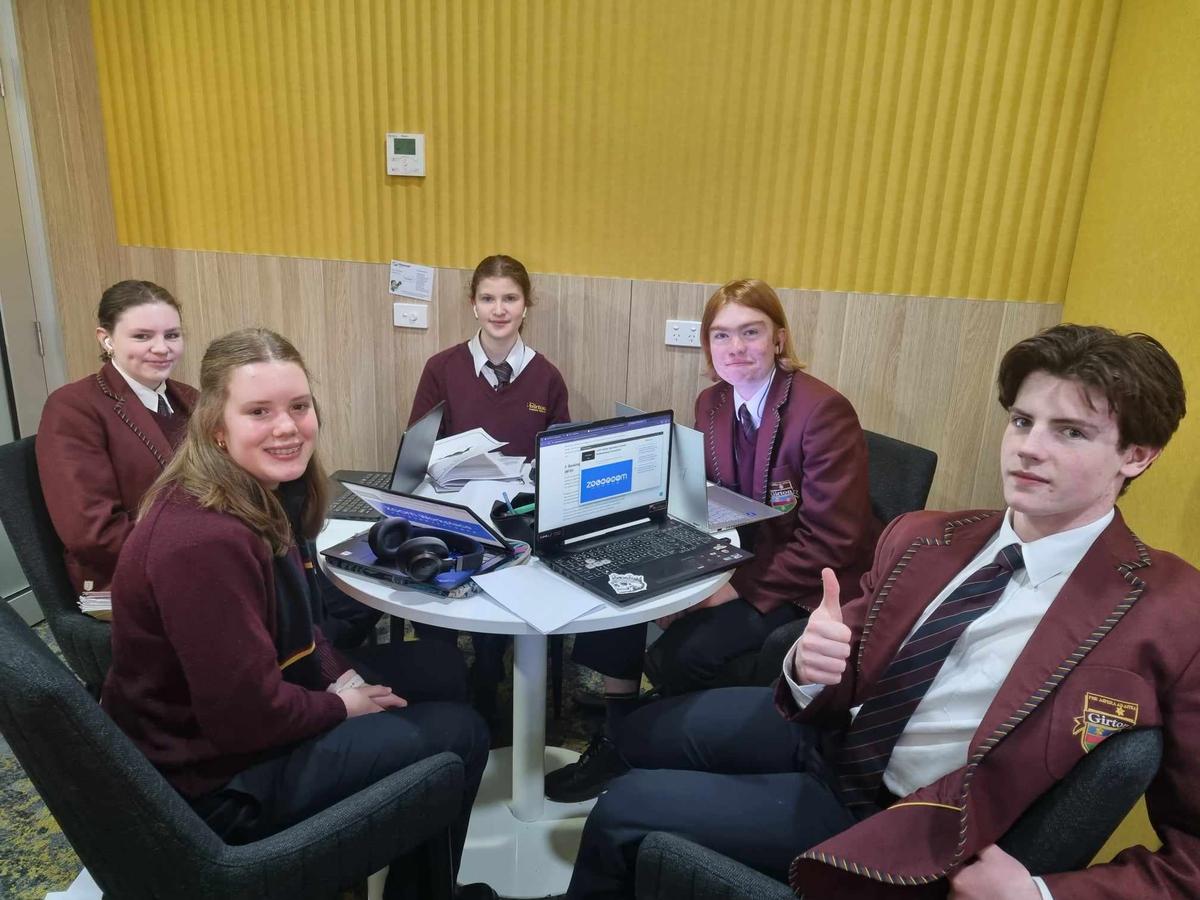Humanities News

Philosophy in Action
Community of Inquiry students attend the Victorian Schools Parliamentary Program Convention
Over two days in Week 5 of this term, seven students from the Community of Inquiry (Year 9 Philosophy) class were offered the opportunity to be part of the Victorian Schools Parliamentary Program. This was an online convention exploring the topic: Should technological advancements, such as AI, be incorporated into the classroom?
The students were introduced to the parliamentary process and were encouraged to be part of a focus group to explore the implementation of AI technology in the classroom. This was a wonderful chance for them to put into practice the logical thinking skills developed in philosophy this year and experience representative democracy in action.
Working with other students in Years 9 to 12 from a variety of schools all over the state, they were able to examine this question from a number of perspectives and discuss the impact this implementation could have on students of different ages, socioeconomic backgrounds and ability levels. The discussion groups came up with a number of insightful recommendations, including banning the use of AI technology in primary schools and developing an AI program that is under the control of the Department of Education to ensure reliability and security.
Congratulations to the participants:
- Aaliyah Greenwell (9 Frew)
- Layla Halliwell (9 Jones)
- Oliver Jacobs (9 Jones)
- Ted McCarthy (9 Riley)
- Mitchell Pole (9 Jenkins)
- Gemma Smith (9 Jenkins)
- Kai Warner (9 Aherne)
Student reflections
Two weeks ago, I had the opportunity to participate in the Victorian Students Parliamentary Program. We had an interesting topic, that technology, such as AI, should be used in the classroom. Going into the program, I was on the affirmative side. At the start of the day, we took a vote and 81% of people were in agreement. We discussed the parliamentary process, then listened to two speakers: Chris Bush, a teacher from Melbourne High School who implements AI into his classroom, and Dr Shanlinka Jaystilleke, a Professor of Business and Technology at La Trobe University, who taught us about the risks that come with this new technology. We then separated into smaller groups with students from numerous different schools across Victoria. We brought up many benefits such as 24/7 tutors, planning lessons and personalised assessments, as well as downsides like data collection, overdependence and cheating. My group discussed some possible alternatives, such as a government-run AI. At the end of the workshop, after receiving facts from both sides of the argument, we revoted and interestingly, only 75% of people stated that AI should become part of the classroom. Overall, it was an incredibly rewarding and thought-provoking experience.
Kai Warner (9 Aherne)
My position before the Victorian Schools Parliamentary Program Convention was no, and after it, I felt as though my position was reinforced because of the arguments presented in the soapbox session and discussions with my peers in the breakout groups. I found that the experience was very interesting. The Victorian Schools Parliamentary Program Convention allowed me to hear different perspectives from different schools and individuals across the state. The different arguments supporting or contradicting the question of 'should AI be incorporated into education' were well presented and people’s intentions were clear. I felt that I was heard. Although I didn’t talk much, other people shared similar ideas to me, and I was free to speak those perspectives myself. The discussion followed a strict order, which I liked, and the points raised were very interesting. Some of the points raised were that AI should be a tool rather than a replacement, AI is equal to a person breaking copyright or plagiarising, and AI is useless to humans until we know how to properly use it. The outcome of the final vote was 14 no or 23%, and 46 yes or 77%, which I did expect from the initial vote, where most people voted yes.
Aaliyah Greenwell (9 Frew)
The topic of the session was ‘ Should new technologies including AI be incorporated into the classroom?’. My position was that it should be incorporated into the classroom. The experience was interesting. We worked with people from all over Victoria and met many smart people our age. It was enjoyable learning from each other and meeting new people. I felt that I was heard, and when we got into our breakout groups, we could really discuss our views. The discussion touched on many points like the safety, the relevance and the importance of AI. Overall, it was agreed that social media should be incorporated but in a controlled and educational way. My view stayed the same throughout the seminar but I did enjoy learning more from the guest speakers and peers.
Gemma Smith (9 Jenkin)
In Week 5, myself and a group of my peers from my philosophy class were given the opportunity to participate in the Victorian Students Parliamentary Program for 2024. This was a highly exciting and rare opportunity and thus one I accepted with open arms. The VSPP aims to provide an immersive learning experience while also allowing students to engage in real democratic processes that could potentially impact their future lives. Our experience was centered around a two-day online seminar that invited a range of schools from throughout Victoria to discuss the topic of whether technological advancements such as AI should be introduced to the classroom. Initially, I believed artificial intelligence would make a positive implementation into the classroom. However, as the seminar progressed and we were further encouraged to consider potential drawbacks of AI usage, my opinion was changed and I came to the conclusion that AI in its current, unpredictable form should not be immediately introduced to learning environments. Rather it should be given further time to develop, and adequate testing should be undertaken prior to its implementation. The seminar concluded with a final vote on whether or not AI should be introduced to the classroom. The results, interestingly, saw an overwhelming 70% of students vote in favor of AI use, so perhaps students should expect to see AI learning tools in the near future.
Oliver Jacobs, 9 Jones



